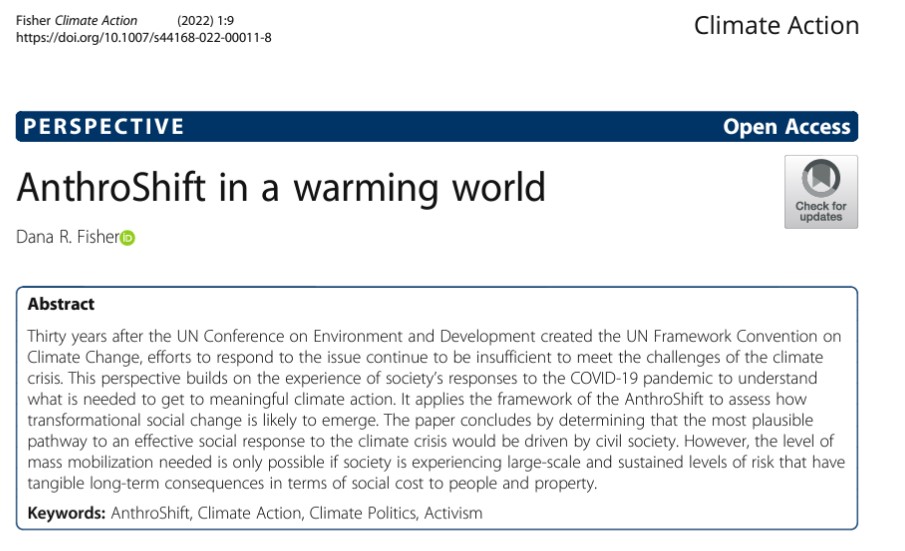
A week after the #TomatoToss and there's a new (just accepted) paper that looks at this sort of confrontational #protest by @ExtinctionR and its effects on the general public! Some thoughts after the past week's discussions @RobbWiller @Revkin @MichaelEMann @Revkin @amywestervelt
https://twitter.com/damiengayle/status/1580864210741133312
The authors use data from a longitudinal study in the UK (so of the population) to assess the effects of the #protest on attitudes, sense of efficacy, support for policy, and "views about the severity and imminence of environmental crises" iopscience.iop.org/article/10.108… 

The results show proximity to the #protest made respondents more supportive of pro-environmental behaviors and policies, but reduced respondents' willingness to pay the price. The authors note they are consistent with the philosophy of @ExtinctionR, which sponsored the actions
Definitely lots to think about, BUT NOTE: the study does not look at the Changes in public response due to the action (ie throwing tomato soup before the glue). IMO that's the important question as #civildisobedience and the tactics of #protest change, innovate and diffuse.
PS neither of the authors--Kountouris or Williams--are on Twitter (which means they likely missed all of the hullabaloo last week) but their institute at Imperial College London is: @IC_CEP
• • •
Missing some Tweet in this thread? You can try to
force a refresh







